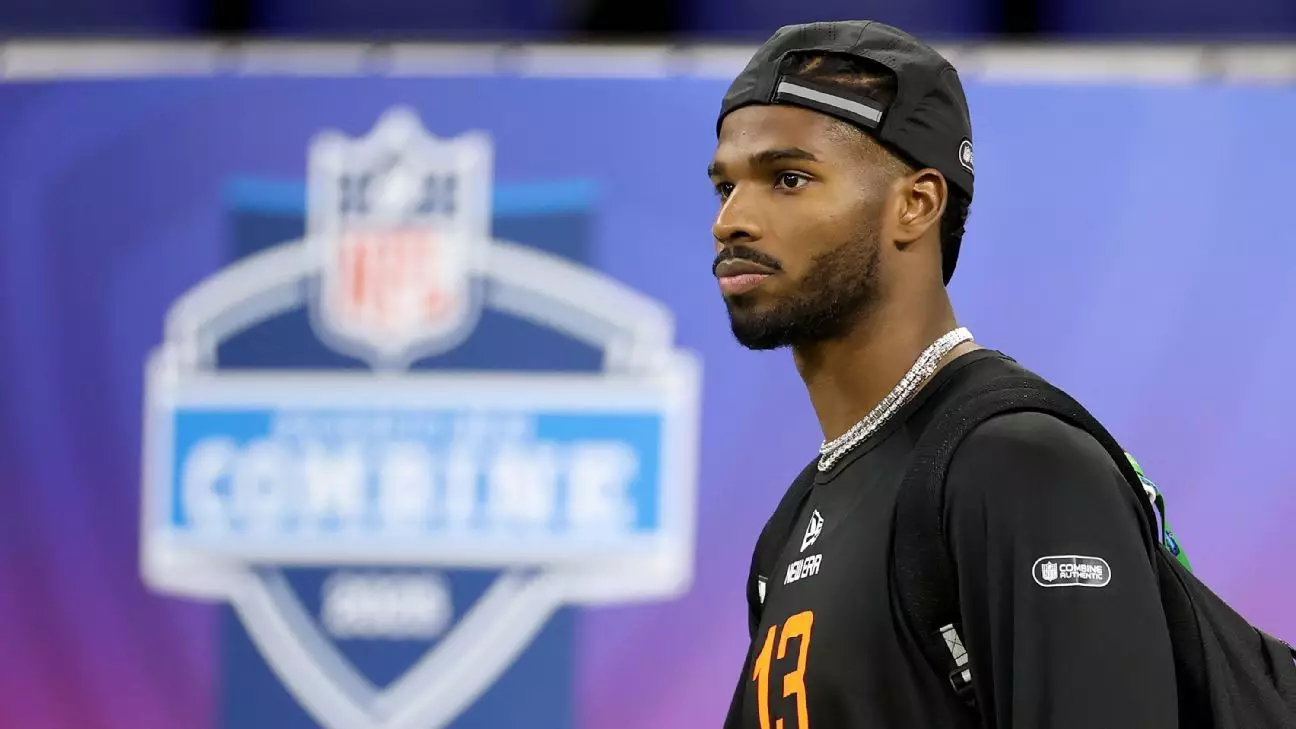The NFL Draft is a momentous occasion for young athletes and their families; it represents years of hard work, sacrifice, and dreams coming to fruition. Unfortunately, the recent prank call made to Shedeur Sanders during this pivotal event serves as a glaring reminder of how immature actions can tarnish such a monumental milestone. Jax Ulbrich, the son of Atlanta Falcons defensive coordinator Jeff Ulbrich, acknowledged his wrongdoing and shared an apology through Instagram, but did this act of penance truly rectify the damage done, or did it simply highlight a broader issue surrounding decorum in sports?
The prank call to Sanders, who was eagerly awaiting his name to be called on the second day of the draft, involved an impersonation of New Orleans Saints general manager Mickey Loomis. The prankster led Sanders to believe he was being selected, only to leave him puzzled and confused at what were supposed to be joyous and celebratory moments. It showcased not just a lack of judgment, but also an alarming disregard for the personal significance of the event.
Invasion of Privacy: The Breach and its Implications
One of the most disconcerting aspects of this prank was how Sanders’ private phone number was obtained. The Atlanta Falcons organization stated that Jax Ulbrich acquired the number from an open iPad at his parents’ home. This raises serious questions regarding data security and the protocols in place to protect players’ private information. The NFL is reportedly investigating the circumstances surrounding the leak, and rightly so; this incident might be an isolated prank, but it serves as a crucial wake-up call about confidentiality in sports.
The fact that a young player’s privacy could be so easily violated suggests there are vulnerabilities within the framework of player management. If it is this simple for private information to fall into the wrong hands, it poses a larger threat that goes beyond just prank calls. For many athletes, privacy is paramount as they prepare to enter a world with unparalleled scrutiny and public interest.
Response from the Parties Involved
In the fallout of this immature escapade, Jax Ulbrich’s apology, where he called his actions “completely inexcusable, embarrassing, and shameful,” shows an acknowledgment of the deeper implications of his actions. His statement of remorse extends to Sanders, expressing an understanding that he disrupted a significant moment in someone else’s life. While it’s commendable to acknowledge one’s mistakes, it begs the question: What should be the consequences for actions that we perceive as childish? Should such behavior warrant disciplinary action, especially when it disrupts someone’s life-changing experience?
Conversely, Shedeur Sanders has taken the high road in how he has handled the situation. Rather than responding with anger or spite, he chose to downplay the incident, brandishing it as merely a childish prank that did not detract from his excitement surrounding the draft. This reaction is rather remarkable, revealing a degree of maturity and emotional intelligence that is rare among young athletes today, often caught in the circus of social media scrutiny.
The NFL’s Challenge: Ensuring Respect in a Competitive Arena
While the NFL stated that no action would be taken against Jeff Ulbrich, the organization emphasized the need to review its internal protocols. The idea that sports can coexist with respect, decorum, and professionalism is essential, especially when young lives and careers are on the line. The culture created by teams should not only focus on winning games but also on cultivating an environment of mutual respect and integrity.
As young athletes stand on the cusp of their careers, the actions and reactions surrounding them will shape their experiences. In an industry dominated by public perception and intense competition, maintaining a sense of decorum is vital not just for the athletes themselves, but for the league as a whole. Instances like this prank call should serve as a catalyst for change to protect players from unnecessary distractions in their most critical moments.
In essence, while Jax Ulbrich’s prank may seem trivial at first glance, it raises broader questions about respect, privacy, and the responsibilities that come with being part of a professional sports organization. It illustrates that accountability should extend beyond just individual actions, prompting us all to evaluate the respect we offer not just in sports, but in all our interactions.

